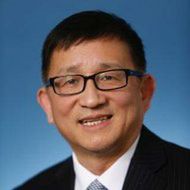The rapid rise of 'the cosmos club' in the Xi Jinping era: Countdown to the 20th Party Congress
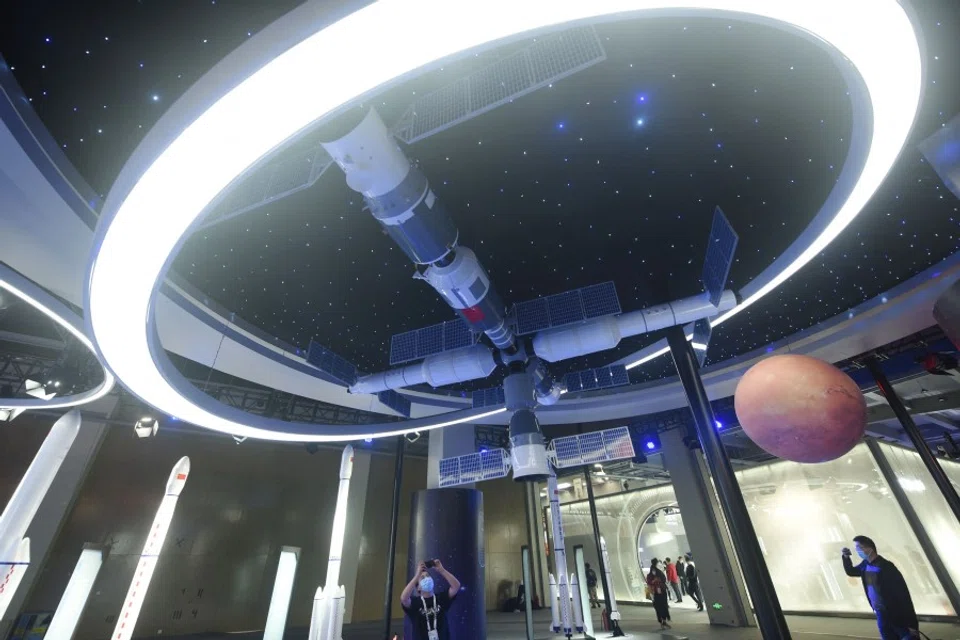
China's ambition and achievements in space exploration have received much attention around the world over the past decade. Less noted but perhaps equally remarkable has been the rise of aerospace business executives in the Chinese political leadership. A new term, "the cosmos club" (航天系 hangtianxi or 宇宙帮 yuzhoubang in Chinese), has recently been coined to refer to the distinct cluster of technocrats who have risen through the ranks of China's space and aviation industries to the national and provincial levels of leadership.
As some Chinese-language media commentators have recently observed, the cosmos club occupies a new "political highland" (��政坛高地 zhengtan gaodì) on the eve of the 20th Party Congress. Notable figures in the club include Xinjiang party secretary Ma Xingrui (b. 1959), Hunan party secretary Zhang Qingwei (b. 1961), Zhejiang party secretary Yuan Jiajun (b. 1962), State Councilor Wang Yong (b. 1955), chairman of the State-owned Assets Supervision and Administration Commission (SASAC) Hao Peng (b. 1960), and Minister of Information and Technology Jin Zhuanglong (b. 1964).
The presence of leaders on the CCP Central Committee with aerospace backgrounds is, of course, not new. But this group has never penetrated the national and provincial levels of leadership at the rate and scale that it has during the Xi Jinping era.
These six leaders have decades-long work experience in China's space and aviation industries, and they are currently full members of the Central Committee (CC) of the Chinese Communist Party (CCP). Two and perhaps even three of them will be strong contenders for the Politburo at the 20th Party Congress this fall, and most of them will play an important role in Xi Jinping's third term and beyond.
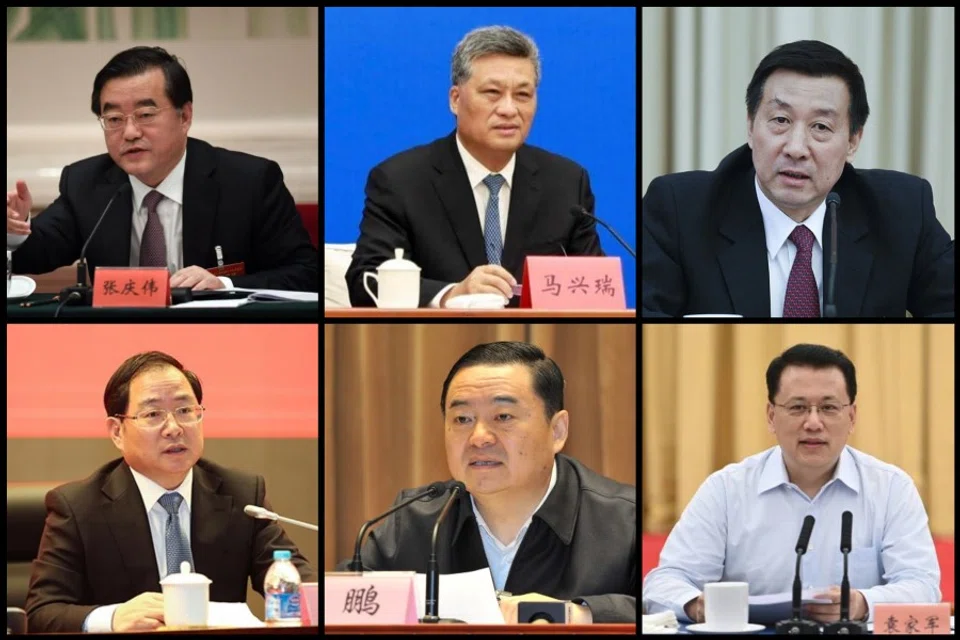
The presence of leaders on the CCP CC with aerospace backgrounds is, of course, not new. But this group has never penetrated the national and provincial levels of leadership at the rate and scale that it has during the Xi Jinping era. During the past decade, a handful of these leaders have served as provincial chiefs (party secretaries and governors), positions that have long been seen as stepping stones to top national positions. Some others have taken important ministerial posts in the State Council. Among the 376 members of the 19th CC, there are as many as 46 leaders (including both civilian and military) who can be identified as members of the cosmos club, accounting for 12.2%.
The strength of this distinct group within the Party leadership arguably reflects China's aspiration to serve a prominent role in the "space club." The Chinese space program, as the British scholar Mark Hilborne described in a 2020 study, "stands out as particularly impressive, with the last two years alone exhibiting developments that eclipse many nations' entire accomplishments in space." For the Chinese leadership, perhaps nothing has been more effective at arousing Chinese patriotic sentiment than the launch of the Tiangong space station last year, which had 310 million live views on Sina Weibo. The strong representation of this elite cohort can be seen as a sign that there is broader support within the CCP leadership for "accelerated development" of the space industry.
From the perspective of elite formation, this cohort could congeal into a new technocratic group within the party leadership.
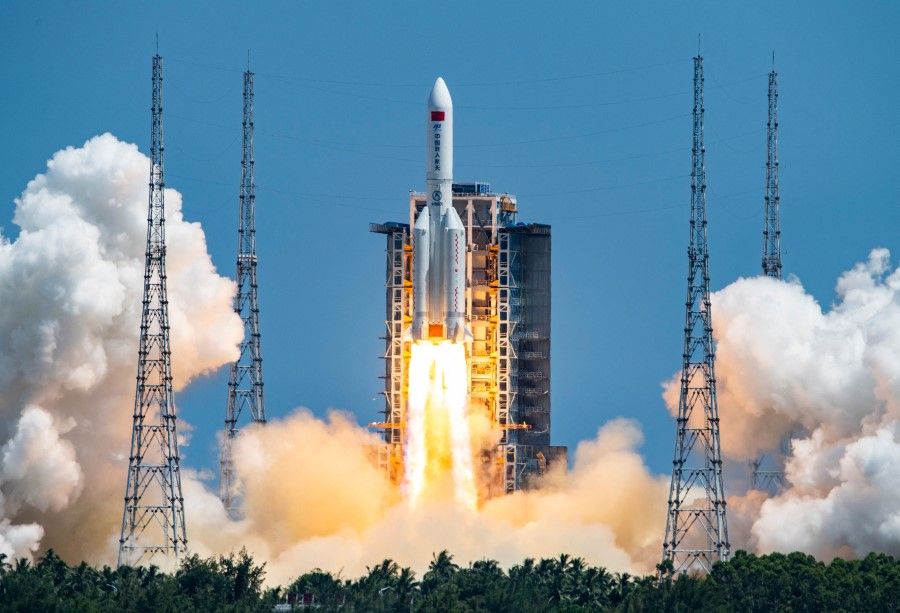
From the perspective of elite formation, this cohort could congeal into a new technocratic group within the party leadership. This development would not only broaden the channels for recruitment of future political leaders but would also likely have immense consequences for the direction of the Chinese leadership as a whole, including the fusion of the civilian and military industries, influencing policy choices and decision-making at the highest levels in the years to come.
The prevalence of leaders with aerospace backgrounds in the Central Committee
Previous articles in this series have analysed the growing importance of business executives from state-owned enterprises and financial institutions in the party leadership, especially among the younger age cohorts. Of all these CEOs-turned-political leaders, however, no group is more dominant at the high levels of leadership today than the leaders who have advanced their careers from the aerospace and aviation sectors.
In terms of the structural development of these two sectors, the Chinese authorities have typically placed them in an identical category (both commercially and militarily) indicating their "integrated air and space capability" (空天一体 kongtian yiti).
This is a marked change from some Central Committees in the past two decades, in which the petroleum sector outpaced other sectors as the single most important business background for high-level leaders.
Chart 1 presents the industry backgrounds of the civilian members of the cosmos club on the 19th CC compared with those from other business sectors. The aerospace and aviation sector cohort has the highest representation with 28 members, including 12 full members and 16 alternates. The representation of this group is double that of the banking and finance cohort, which ranks second.
Only six leaders have previously served in the petroleum/chemical sectors, numbering less than a quarter of those from the aerospace and aviation cohort. This is a marked change from some CCs in the past two decades, in which the petroleum sector outpaced other sectors as the single most important business background for high-level leaders.
More broadly, the space programme is an integral part of the country's long-term vision for national rejuvenation.
Xi Jinping's strong inclination to promote leaders with aerospace backgrounds
Xi Jinping has long advocated prioritising China's space programme - the aerospace industry on both the military and civilian fronts - which he views as the best testimony to China's national strength and status on the world stage. China's space dream, as Xi shared with astronauts aboard a prototype space station soon after he became the top leader in 2013, "is part of the dream to make China stronger". More broadly, the space programme is an integral part of the country's long-term vision for national rejuvenation.
Since 2016, China has designated 24 April - the day when China's first artificial earth satellite "Dongfanghong-1" was launched in 1970 - as "China's Space Day". For Xi and other CCP leaders, the People's Republic of China (PRC) is now engaged at full speed in the interplanetary race to explore the next frontier of the cosmos.
In January 2017, Xi established a new commission to oversee the integration of military and civilian development known as the Military-Civilian Fusion Commission with Xi himself as its head. Arguably, the most important technology provider in the fusion of military and civilian development is the aerospace industry, which has carried out high-profile megaprojects such as the Lunar Exploration Programme (also known as Chang'e Programme), the Manned Space Programme (Shenzhou Programme), and the Tiangong Space Station, among others.
There are arguably other important reasons for Xi to promote leaders from the aerospace industry, which include 1) expanding channels for elite selection, 2) broadening and diversifying his political power base, 3) fostering a new generation of technocrats with a stronger inclination for indigenous innovation, 4) appointing "outsiders" to provincial/municipal leadership positions to undermine economic localism and locality-based political factions, 5) appointing former CEOs of China's flagship companies to be provincial chiefs in order to enhance economic efficiency and the international competition of localities, 6) promoting the integrated development of military and civilian enterprises, and 7) strengthening national security by building a more modernised defence industry.

China's aggressive industrial policies - in accordance with its "Made in China 2025" plan - aim to promote state-backed domestic players in the Chinese leadership's "strategically important sectors", such as aerospace, shipbuilding and robotics. Members of the cosmos club have advanced their careers in a high-tech sector of top priority in the PRC.
...these technocrats in China's aerospace and defence industries can best deliver what CCP leaders call "socialism with Chinese characteristics", or what critics describe as "state capitalism".
As Deng Yuwen, a Chinese political dissident and former editor of the Central Party School journal Study Times, recently told the South China Morning Post, "Xi has greater trust in those who have served in the aerospace and defence sectors." In a sense, these technocrats in China's aerospace and defence industries can best deliver what CCP leaders call "socialism with Chinese characteristics", or what critics describe as "state capitalism".
The rise of leaders with aerospace backgrounds can also be partly explained by political considerations. These leaders have spent most of their professional careers in technical fields, and their service in provincial/municipal leadership positions has been relatively brief. As a result, they are more inclined to be allegiant to the top national leadership. A closer look at the career development of the prominent members of the cosmos club seems to illustrate this observation.
Prominent candidates to watch from 'the cosmos club'
The CCP CC has long included a few rocket scientists. Several major contributors to the so-called "two bombs, one satellite" programme (the common Chinese expression referring to the atomic bomb, the intercontinental ballistic missile and the artificial satellite) served on the CC. They include internationally well-known scientists Qian Xuesen (alternate member of the 9th-12th CCs), Zhu Guangya (alternate member of the 9th-10th CCs and full member of the 11th-14 CCs), Deng Jiaxian (full member of the 12th CC), Song Jian (alternate member of the 12th CC and full member of the 13th-15th CCs), Zhou Guangzhao (full member of 13th-15th CCs), and Luan Enjie (alternate member of the 13th-15th CCs).
More recently, former chair and party secretary of the Aviation Industry Corporation of China Lin Zuoming (b. 1957) served as an alternate member of the 16th-17 CCs and a full member of the 18th CC. But none of the technocrats in the aerospace industry mentioned above served as a provincial or municipal leader. The only exception in the early period of aerospace industry development is Zhang Yunchuan (b. 1946), who served as provincial leader.
Zhang, a technocrat trained at the Harbin Institute of Military Engineering, had provincial leadership experience in Jiangxi, Xinjiang and Hunan. He later served as director of the State Administration of Science, Technology, and Industry for National Defense (SASTIND) in 2003-2007 and concurrently as head of the "Chang'e Project" Leading Group. Before his retirement, he served as Hebei party secretary from 2007-2011. Zhang was a full member of the 16th-17th CCs.
More than half of them (11) have leadership experience as vice ministers or ministers, and five of them currently serve as ministers in the State Council. Some of them, including Ma Xingrui, Huai Jinpeng, Cao Shumin, and Zhang Guangjun, also served as university party secretaries, presidents or deans.
Table 1 presents 20 prominent candidates with aerospace leadership experience for the 20th CC. They seem to have more diverse political and professional career paths compared to their predecessors in the aerospace industry from an earlier era who often worked exclusively in scientific and technological research and the military industrial complex. The most distinct feature of these rising stars is that most of their work experience often spans four domains: 1) scientific and technological research, 2) administrative work in military industrial complex, 3) ministerial leadership in the State Council, and 4) experience in the top provincial leadership.
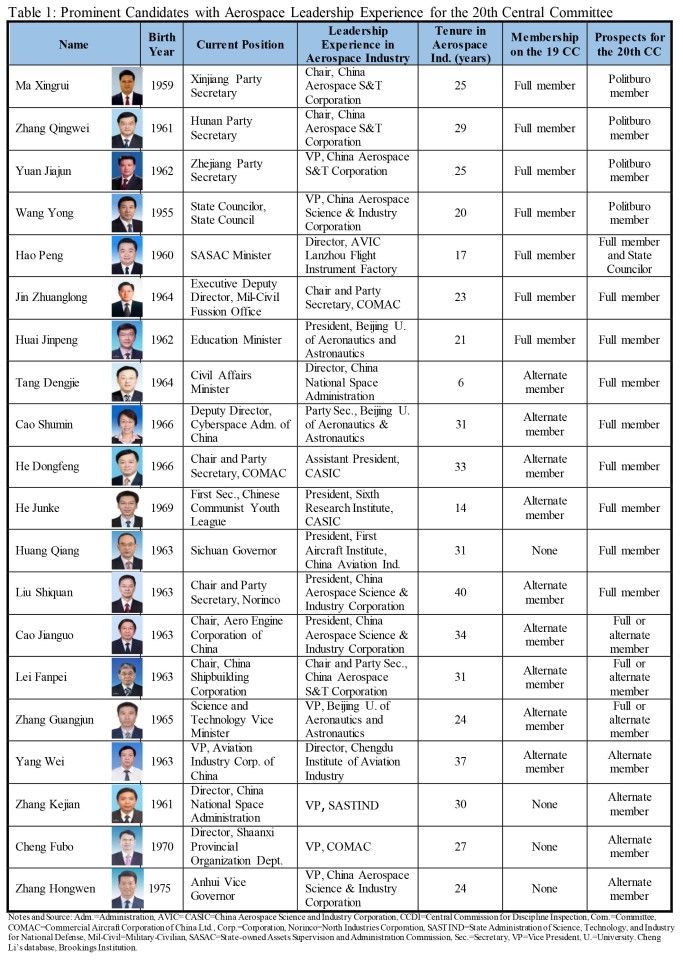
In addition to their shared substantial leadership in the aerospace and aviation sectors (in which some have worked for three or even four decades), six of them currently serve as provincial leaders (three as party secretaries and one as governor). Others including Hao Peng, Huai Jinpeng, and Tang Dengjie previously served as provincial governors and/or deputy provincial party secretaries. More than half of them (11) have leadership experience as vice ministers or ministers, and five of them currently serve as ministers in the State Council. Some of them, including Ma Xingrui, Huai Jinpeng, Cao Shumin, and Zhang Guangjun, also served as university party secretaries, presidents or deans.
...at the 20th Party Congress, two or perhaps even three civilian leaders with aerospace leadership backgrounds will enter the Politburo for the first time in PRC history.
Some of these strong contenders for promotion already have long tenures in the CC. Zhang Qingwei, for example, was the first post-1960s generation (6G) member who served in the CC. In 2002 at the age of 41, Zhang became a full member of the 16th CC and has kept that seat on the succeeding three CCs. Yuan Jiajun and Jin Zhuanglong first joined the 17th CC as alternates. Liu Shiquan has served as a four-time alternate since the 16th CC.
Four leaders have not served on the CC before. Huang Qiang will most likely obtain full membership on the 20th CC given that he is now Sichuan governor. Two 7G leaders, director of the Shaanxi Provincial Organization Department Cheng Fubo (b. 1970) and Anhui vice-governor Zhang Hongwen (b. 1975) are among the leading candidates in their age cohort for alternate membership at the 20th Party Congress this fall.
Most importantly, one can reasonably expect that at the 20th Party Congress, two or perhaps even three civilian leaders with aerospace leadership backgrounds will enter the Politburo for the first time in PRC history. Overall, members of the cosmos club will likely have record breaking representation on the CC that will be formed this fall.
This article was first published by China-US Focus as The Rapid Rise of the "Cosmos Club" in the Xi Jinping Era as part of the "Reshuffling Report", a series of articles based on empirical research by Li Cheng, director of the John L. Thornton China Center of the Brookings Institution, in the run-up to the CCP's 20th Party Congress.
